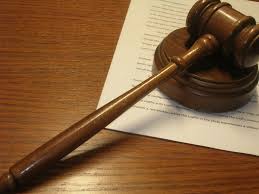Jobs impacted: 1,268,011 lawyers in the US & 650,033 lawyers in the EU
Lawyers; you either love them or you hate them. I am married to one, so I need to be careful here… Maybe you’re a legal professional yourself?
Lawyers are a prime example of people who earn their daily bread by using knowledge. They first invest significant time understanding the rules of the legal system in place and then help people who require ‘justice’ or “protection” under that system.
At the same time, they monitor changes in the system and propose modifications to it in specialised literature. These criticisms and suggestions are then extensively debated by legal professionals and if any substance is found in these discussions, these trickle into jurisprudence on a case by case basis or in the legal system as a new rule or a new interpretation of it.
As with many other knowledge-driven jobs, current and future technologies are poised to significantly impact the day to day law profession.
A report from Jomati consultants, aptly titled Civilisation 2030: the near future for law firms suggests that robots and artificial intelligence will dominate legal practice within fifteen years effectively pushing out all knowledge driven tasks linked to the profession.
Technology will confirm Shumpeter’s law of creative destruction again, in spite of increasing requests caused by:
1) more people, and
2) more complex legal systems.
Let’s take a closer look.
 As with any rule based system, law can be modelled into a quite extensive decision matrix with variables and algorithms. Software can scan and deduct the rules in place and qualify a case. Today, there are already services that have a grain of what is to come in their DNA.
As with any rule based system, law can be modelled into a quite extensive decision matrix with variables and algorithms. Software can scan and deduct the rules in place and qualify a case. Today, there are already services that have a grain of what is to come in their DNA.
Take Road Traffic Representation which has a free service pre-qualifying your road traffic case on feasibility and substance, effectively replacing the first analysis done by a lawyer. Law firms who bill hefty fees will have to either have hyper-specialised senior lawyers or the latest artificial intelligence to support the bills.
The question to be asked is, “how will we have hyper-specialised lawyers if we don’t give them the time to learn?” Associate lawyers will become largely redundant as their expertise is too low to the warrant service fees as they are charged now. It doesn’t stop at the doorstep of lawyers though; let’s take it one step further:
Automated judiciary systems
With text mining technology advancements and exponential increases in computing power, we could evolve towards a legal system where automated judgements based on specific variables are set in place.
Software available today mainly drives visualisation, categorisation and management of legal arguments. This helps lawyers to automatically react to given arguments by the opponent but can also be used to come to a legal decision matrix, effectively replacing a judge.
The benefits are clear: faster access to justice, reduction of the public costs of running the law system and more predictable judging in place. Do we want the decision to be made for us?
The big Happonomy question
What should the prime focus of the activities of a lawyer be: knowledge driven advice or social support to people? Obviously, both would be relevant, but the question remains in which balance these will find each other.
Do we want to be judged by people who make mistakes or do we prefer the automated judgement of a machine? If so, to what extent?
Want more?
Want more? Don’t be sad that the article is over! We got plenty of other exciting stuff to share with you. Subscribe to our bi-monthly newsletter and we’ll keep you up to date with our latest news!


Leave a reply